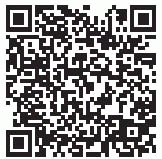Multiple System Atrophy, Parkinsonian Type
OBJECTIVES
To illustrate the clinical presentation of multiple system atrophy, parkinsonian type.
To describe the typical imaging abnormalities.
To highlight distinguishing features with Parkinson disease.
VIGNETTE
This 57-year-old woman noticed right toe curling when running or jogging about 8 years prior to this evaluation, followed, within a year, by right arm stiffness and micrographic handwriting. Her hand was noted as having a reddish discoloration in the mornings, and her dexterity for various fine tasks became impaired. By her second year of symptoms, she developed fainting spells when standing, her walking slowed with reduced arm swinging. She had early substantial response to levodopa for about 12 to 18 months, but subsequent titration efforts failed to curb her progressive postural impairment and increasing rate of falls, most of which were backward. Over the prior year, she needed a walker while at home to minimize the risk of falls. Her speech became hypophonic and effortful and she developed a “thick tongue” sensation and starting chokes almost daily with liquids more than solids. She developed constipation, dream-enactment behaviors, and urinary stress incontinence. She believed her sense of smell was normal.
 |
The patient presented with a tremorless but asymmetric parkinsonism associated with atypical features for Parkinson disease (PD), including a relatively rapid accrual of disability, initial but transient responsiveness to levodopa, early development of dysautonomia (neurogenic bladder, Raynaud phenomenon, and orthostatic hypotension) and, on exam, stimulus-sensitive axial myoclonus, hyperreflexia, lower limb spasticity, and striatal toes with extensor plantar responses. These findings were highly suspicious for the parkinsonian variant of multiple system atrophy (MSA-P). The diagnosis was further supported by the finding of slit hyperintensity in the lateral putamen on T2-weighted brain magnetic resonance imaging (MRI) (Fig. 56.1).
Stay updated, free articles. Join our Telegram channel

Full access? Get Clinical Tree








